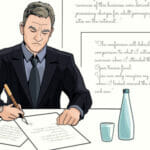We all know the Fourth of July is a great time for picnics, parades, and fireworks, but how much do you know about the historical significance of this summer holiday? If your recall of the facts concerning the American Revolutions has gotten a little hazy, there are plenty of good books to help. Here are five books that will give you a good refresher course on the turbulent times and the amazing leaders who fought for our country’s independence from Great Britain.
Five Books To Read On The Fourth Of July
Fourth of July reading: 1776 by David McCullough (2006)
Pulitzer Prize winning historian David McCullough has a knack for writing non-fiction that reads as fiction, and here the author of John Adams and Truman tackles the improbable story of a ragtag army that ends up defeating the most powerful army in the world. With his blend of anecdotes and details, we come to understand how close the Yankee rebels came to losing everything. By focusing on the events of an entire pivotal year, rather than on one individual, we get a broad perspective of the events that shaped the launching of our nation.
Fourth of July reading: Founding Brothers by Joseph Ellis (2002)
As students, we often think of our founding fathers in lofty terms. In this Pulitzer Prize winning book, however, Ellis introduces us to the very human – and therefore flawed — men who led the revolution. Ellis examines six crucial episodes in the founding of our nation: Alexander Hamilton and Aaron Burr’s deadly duel, George Washington’s Farewell Address, John Adams’ partnership with his wife, the fiery debate about where to locate the nation’s capital, Benjamin Franklin’s unsuccessful attempt to force Congress to confront the issue of slavery, and Thomas Jefferson and Adams’ compelling correspondence. The book is entertaining and readable even for people who do not consider themselves history buffs.
[drizzle]Fourth of July reading: Burr by Gore Vidal (1973)
Here is historical fiction at its best. Through the perspective of a fictional journalist named Charles Schuyler, Vidal tells us the colorful and dark story of Aaron Burr, who is left out of most lists of founding fathers. In 1804, while serving as vice president, Burr fought a duel with his political rival, Alexander Hamilton, and killed him. In 1807, Burr was arrested, tried and acquitted of treason. In 1833, according to Vidal’s account, Burr tells his story to Schuyler, a young New York City journalist. Though the premise for the book is fictional, the facts are all there, and Vidal weaves in interesting details about his other major characters – Washington, Adams, Jefferson, Hamilton, Madison, Jackson and Van Buren.
Fourth of July reading: My Dearest Friend: Letters of Abigail and John Adams, edited by Margaret A. Hogan (2010)
This book is an extraordinary collection of letters between John Adams and his wife, Abigail. The two had a close relationship, and Adams used his wife as an advisor on his career and political decisions.
Both writers have a lively, engaging style, and the letters reveal intricate details about life in the 18th century. From “Remember the ladies,” Abigail’s plea to her husband and the Continental Congress to Abigail touching premonition about the loss of her unborn baby, this book is an intimate look at a marriage that helped shape our nation.
Fourth of July reading: Autobiography by Benjamin Franklin (1791)
Inventor, writer, statesman, philosopher – Benjamin Franklin was a true Renaissance man. His autobiography reflects his wit and wisdom. He writes about his boyhood, his work as a printer, his experiments with electricity, his experiences in the French and Indian War, his long political career and his philosophies. Franklin’s style is entertaining, and you will gain new insights into the talent and intelligence of this amazing man.
For other information about the Fourth of July, check out the following websites: http://www.constitutionfacts.com/us-declaration-of-independence/fourth-of-july/
[/drizzle]










